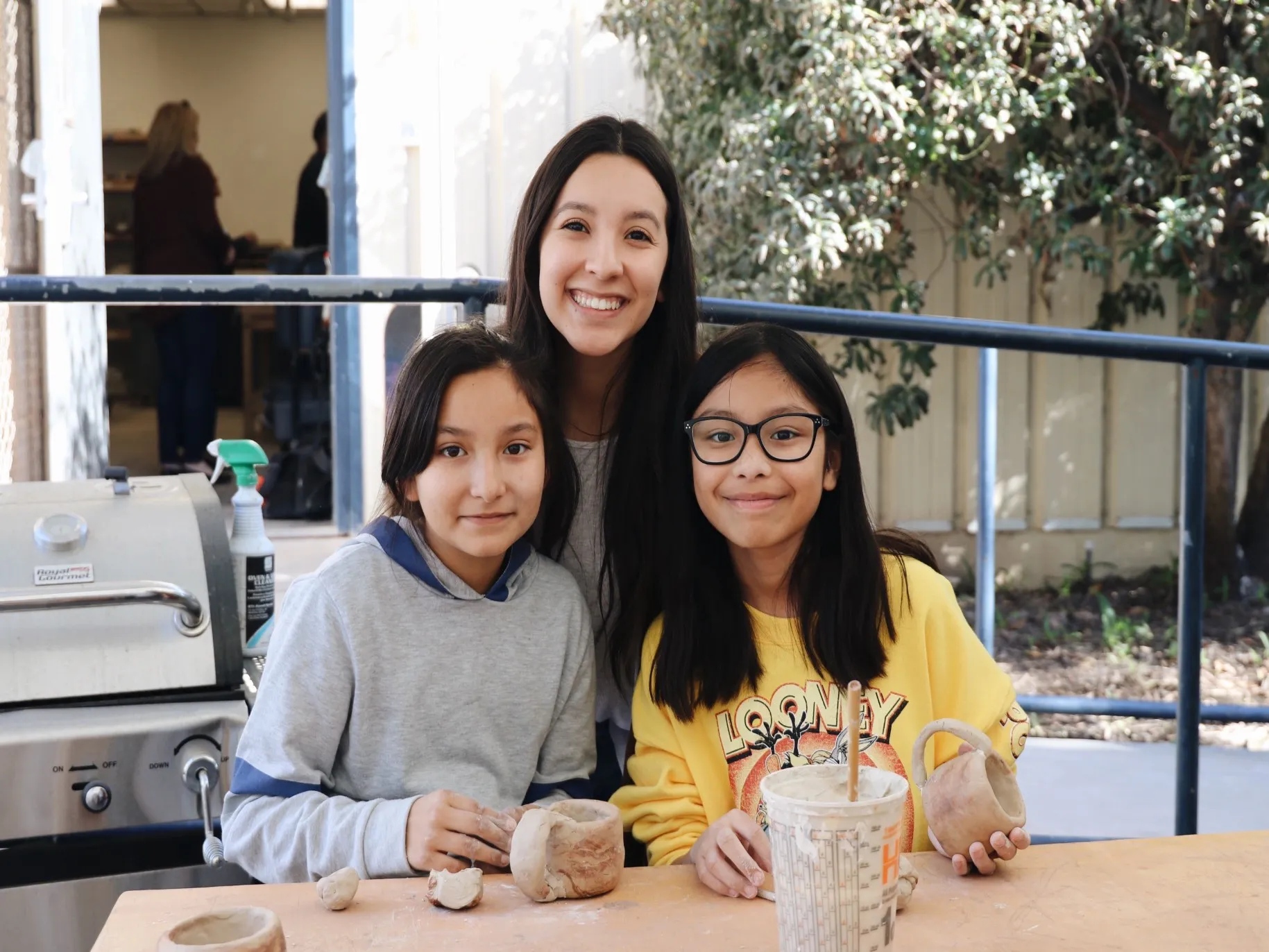- Home
- >
- APU Articles
- >
- News Article
Community Engagement: APU’s Commitment to Service Merits a Carnegie Classification
December 02, 2024 | Category service | Written By Jacqueline Guerrero

Azusa Pacific University was founded on the principle of service. The university’s long-standing history of exemplifying God’s goodness to others dates back to the university’s founding in 1899. “I can’t think of a time in which we didn’t focus on serving the local and global community,” said Erin Thorp ’96, MA ’13, interim director of the Center for Community-Engaged Learning.
Today, the university and its students are still committed to helping communities thrive through Local Engagement opportunities, Global Engagement trips, academic service learning projects, faculty-led summer courses called Go Terms, and much more. In the 2023-24 academic year, more than 1,200 students participated in a multitude of service opportunities.
In 2010, APU’s investment in community service and engagement was recognized with a Carnegie Classification of Institutions of Higher Education for Community Engagement. APU is one of only 368 institutions to hold the classification in the United States, and is one of just eight universities in the Council for Christian Colleges and Universities (CCCU) to hold the title. “Service is something APU takes pride in no matter the level of recognition, but we’re honored that the title makes visible to others what’s already happening on our campus,” Thorp said.
APU’s Carnegie classification is up for its third cycle of renewal. In order to promote and organize even deeper community engagement and prepare students for engaging with diverse communities after graduation, the university created the Community Engagement Committee. The committee’s main goals include organizing service opportunities, streamlining information, and supporting all students, faculty, and community members involved.
The committee also works to uphold APU’s five principles of community engagement: a reflection of Christian ethos, purposeful and goal oriented, cooperative and collaborative, mutual and reciprocal, and responsible and respectful. Each service opportunity is designed and structured to exemplify all five of the Carnegie principles listed to ensure that APU students and faculty as well as APU’s community partners form long lasting relationships through mutually beneficial service. “You can’t participate in community engagement without the community, so we make sure that they’re a crucially voiced part of all planning,” Thorp said. “APU sees and hears about the needs of the community and helps where we can as opposed to coming with our own planned agenda.”
The committee is co-chaired by Karen Rouggly ’05, MA, DMin, director of the Office of Service and Discipleship. Each committee member is dedicated to promoting and improving quality connections in the community because of their personal experience in local and global engagement. “Through my engagement as a college student at APU, my eyes were opened to who God created me to be and what He created me to do,” she said. “Stewarding opportunities for students to serve inside and outside of the classroom comes from a place of deep gratitude for being impacted by the program myself. We as a committee want to see that impact continue in the next generation.”
APU’s community engagement is based in the biblical idea that when you work and interact with the city you live in, the people of the city and yourself will prosper. “APU’s Carnegie classification is a prestigious outward recognition of not just the fabric of APU, but who God created His people to be and how He wants us to live,” Rouggly said. APU’s service requirement is designed to show students that a degree is not just something you pursue to tackle community issues after graduation, but rather love of community is something that can be learned in tandem with receiving an education in academics.
Learning to put what is taught in the classroom into practice allows students to graduate with experience working in communal environments,” Rouggly said. “At APU, we encourage students to take the opportunity to dedicate themselves to service in the classroom and the community with equal value.
While students benefit from experience and guidance, APU’s community partners have continued to show a need and support of local engagement. “We love when our partners are surprised at the level of mutual collaboration we prioritize,” Thorp said. “It’s part of how we guarantee to make a truly meaningful difference in the community.” Rouggly added that community partners have expressed that they feel not only like a beneficiary of service, but as collaborators and teachers. “When we send our students to be under the leadership of community members and organizations, we notice that they teach our students about what it means to be an engaged citizen from their expertise and vantage point,” she said. “We know the community will pour into our students as difference makers.”
APU’s dedication to fostering a collaborative and diverse community is a completely unique experience compared to local engagement at other institutions. “It’s not often at an Evangelical university where students, police officers, the city mayor, representatives from the local school district, and business owners come together to affirm that we’re in partnership together and desire the blessings that we each have for each other and our community,” Rouggly said. “Because of this, APU is truly a special place.”